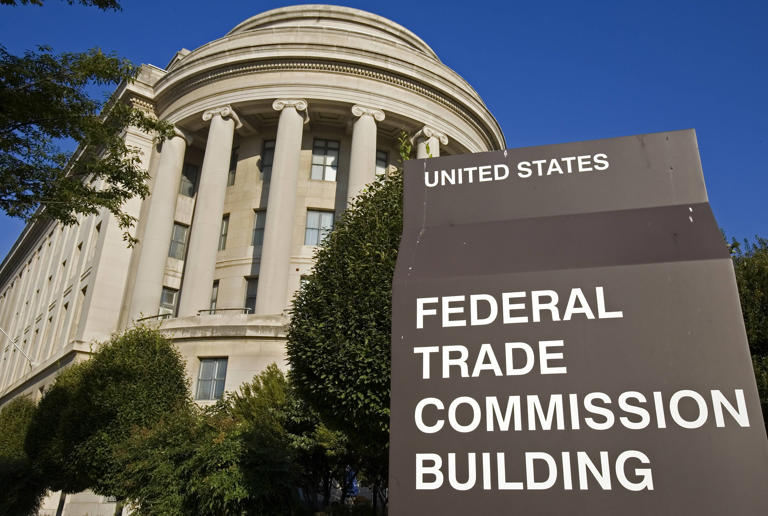The Federal Trade Commission (FTC) made a momentous decision on Tuesday, culminating in the approval of a rule aimed at prohibiting the widespread use of noncompete agreements, a practice that has long been under scrutiny for its adverse effects on worker mobility and wage suppression. These agreements, often signed by employees, restrict their ability to join rival companies or start competing businesses after leaving their current employer. The FTC, currently under a Democratic majority under President Joe Biden, voted 3-2 to greenlight the rule during a public meeting, signaling a concerted effort to address concerns surrounding worker rights and competition within the labor market.
The rule, which was initially proposed in January 2023, is slated to take effect in August, marking a significant shift in labor policy and regulation. Its approval comes as a response to mounting criticism of the widespread use of noncompete agreements across various industries, even in sectors with lower wage levels, such as fast food and retail. Advocates for the rule, including Democrats, the FTC, and worker advocacy groups, argue that these agreements have a detrimental impact on worker mobility and economic opportunities, contributing to the suppression of wages and hindering employees’ ability to seek better employment opportunities.
According to estimates by the FTC, banning noncompete agreements could lead to a substantial increase in worker earnings, with projections indicating potential additional earnings of up to $488 billion over the next decade. Additionally, the agency anticipates that the prohibition of noncompetes will foster entrepreneurship and innovation, with the creation of over 8,500 new businesses annually as a direct result of the rule.
FTC Chair Lina Khan emphasized the broader implications of noncompete agreements, highlighting their role in not only limiting job opportunities but also infringing on fundamental rights such as freedom of speech, religious practice, and the right to organize. Khan characterized the use of noncompetes as a form of economic coercion, depriving workers of essential liberties and necessitating regulatory intervention to safeguard their rights and promote a more competitive labor market.
Despite the FTC’s approval of the rule, it faced staunch opposition from the commission’s two Republican commissioners, Melissa Holyoak and Andrew Ferguson. They argued that federal law does not grant the commission the authority to implement broad rules prohibiting conduct deemed anticompetitive. Additionally, they expressed concerns about nullifying existing contracts containing noncompete agreements and questioned the FTC’s legislative role in enacting such regulations.
The business community, represented by major industry groups like the U.S. Chamber of Commerce, also voiced its opposition to the rule, contending that noncompete agreements are vital for protecting trade secrets and fostering competitiveness. These groups have signaled their intent to challenge the rule legally, raising questions about its potential impact on employers and the broader business landscape.
Nevertheless, the FTC’s decision to ban noncompete agreements marks a significant milestone in labor policy and regulation, reflecting a broader effort to promote competition and protect worker rights in the modern economy. With the rule set to take effect in August, its implementation is poised to have far-reaching implications for employers, workers, and the overall dynamics of the labor market, underscoring the importance of ongoing debates surrounding worker mobility and economic fairness.
